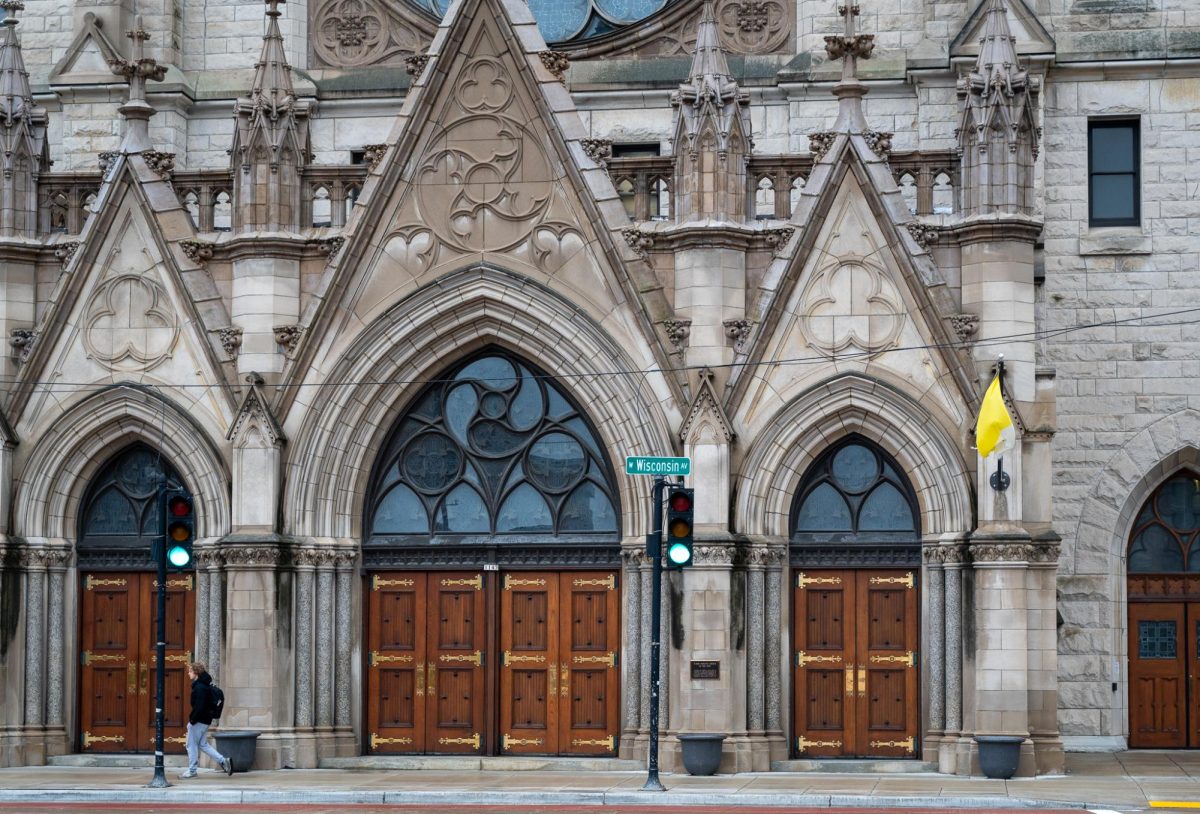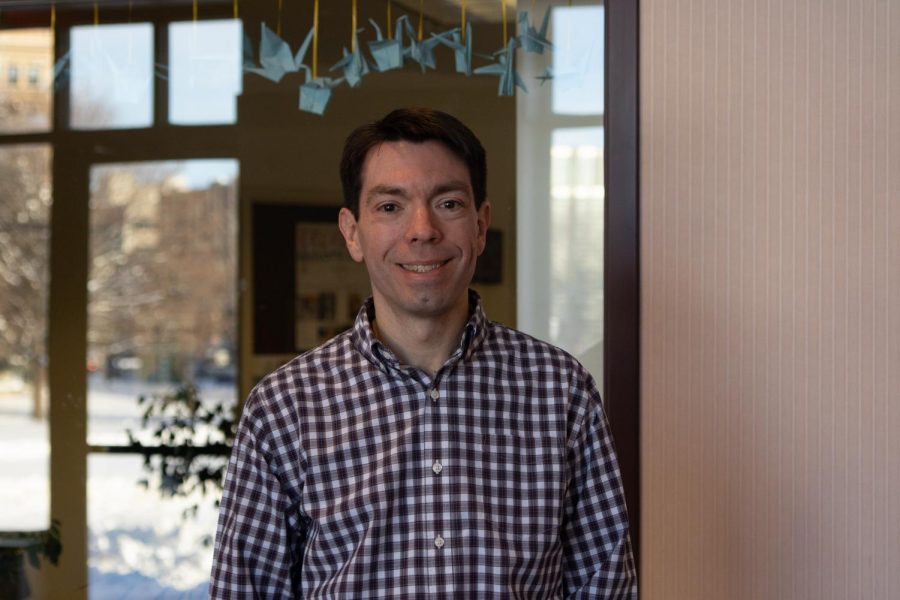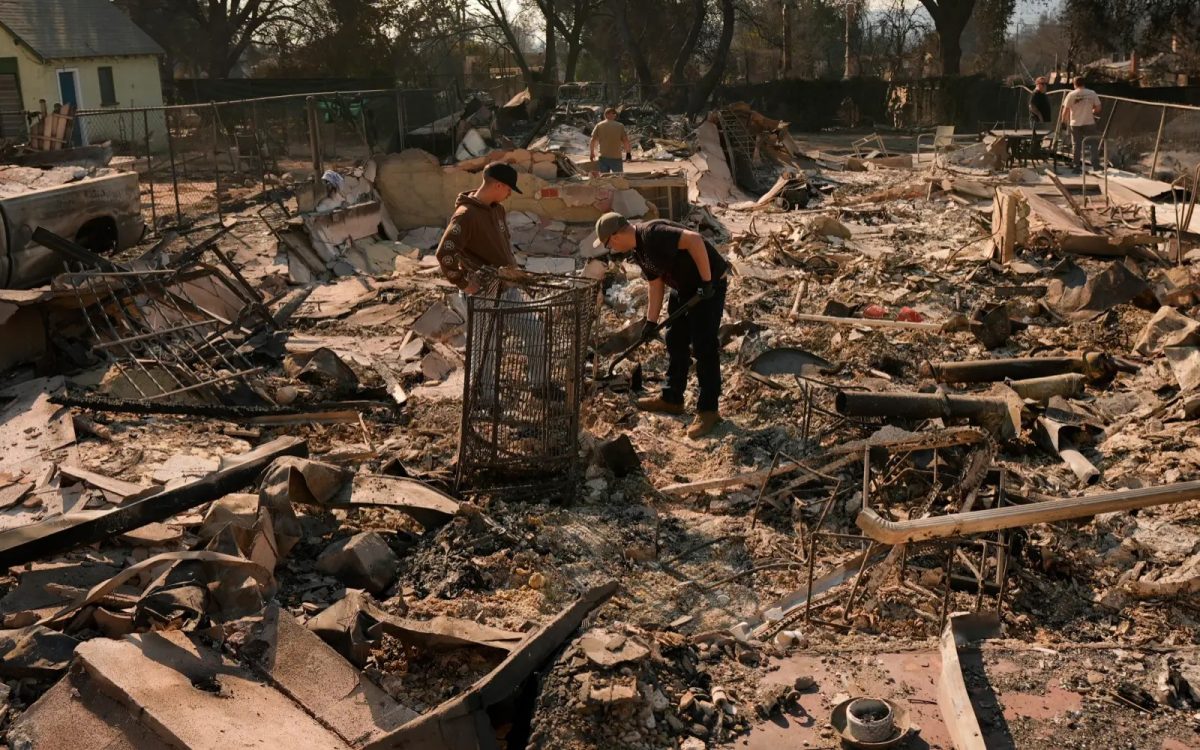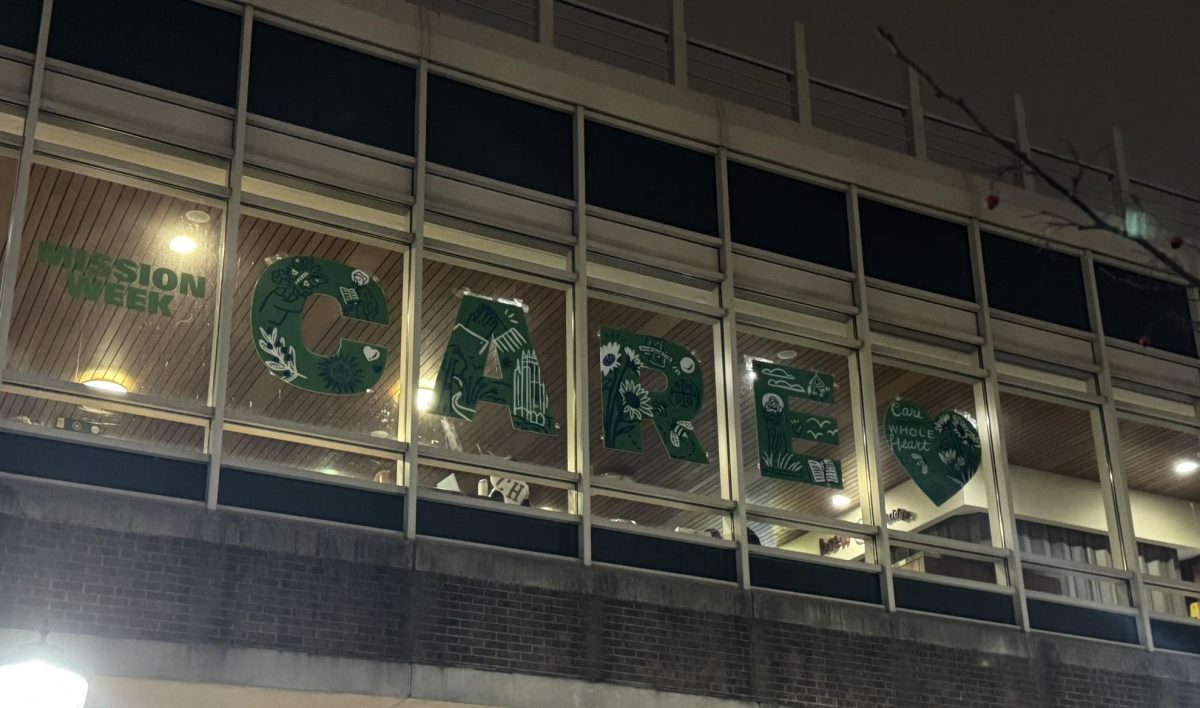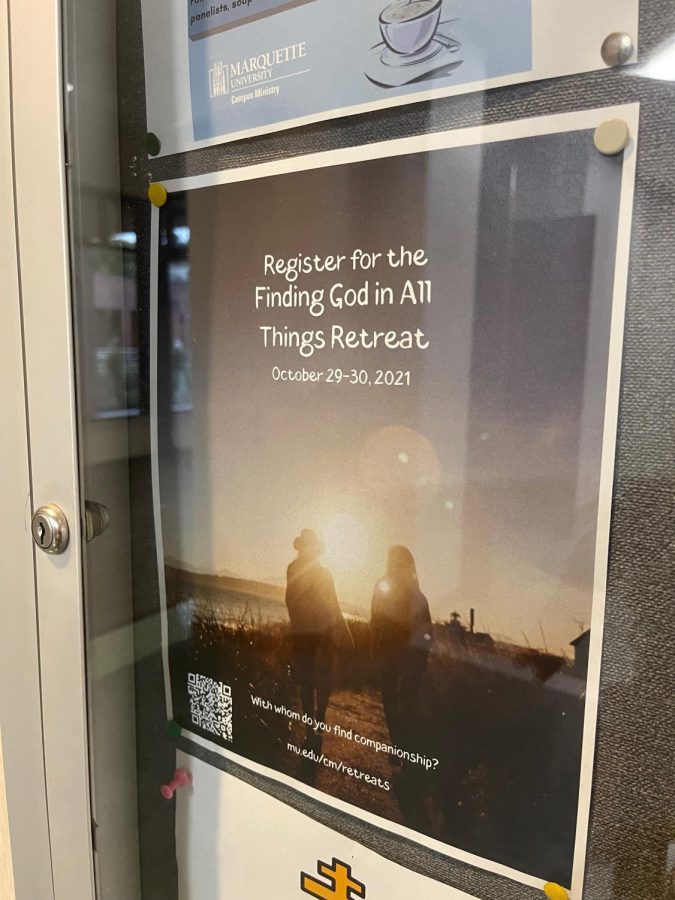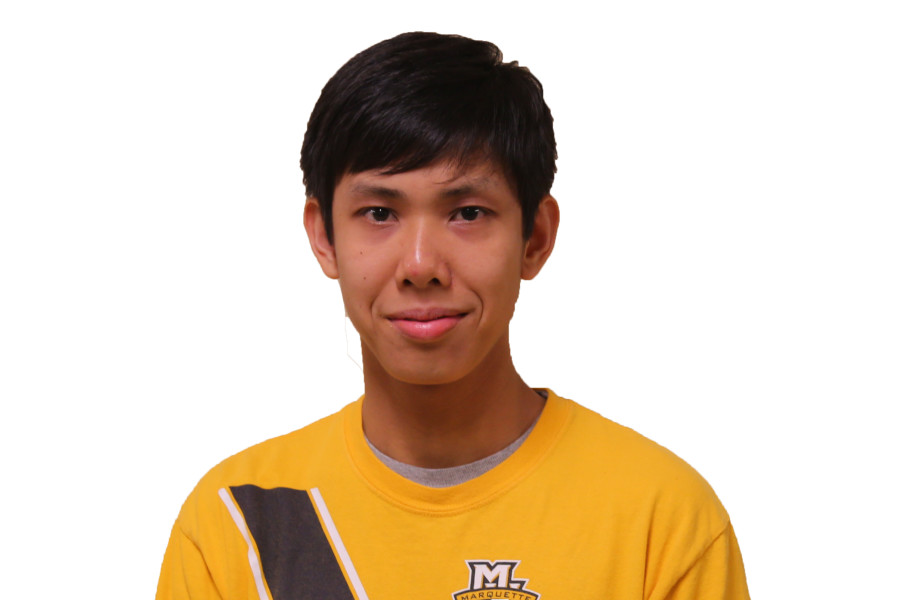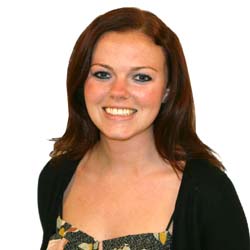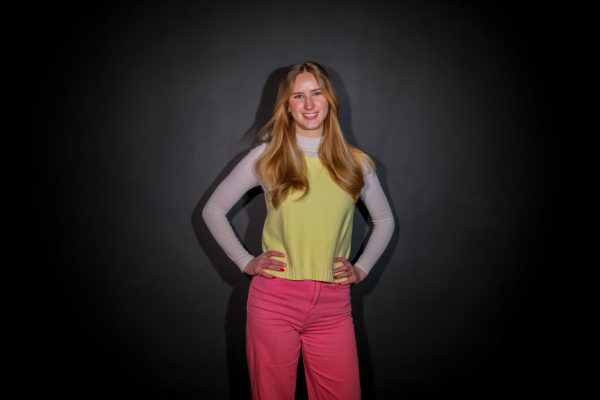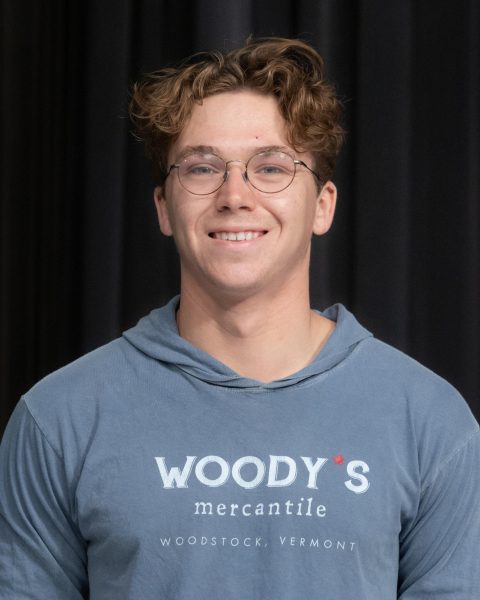Marquette University’s campus ministry has an anti-racism statement that “desires to promote justice and equity for all persons.” Campus ministry is creating and extending programs that advocate for the inclusion of underrepresented individuals and addressing social justice issues beyond the physical limitations of the Milwaukee campus.
Vevette Hill-Nwagbaraocha is an assistant director in campus ministry who has a background in social work and helps run programs that aid students, specifically those who may feel underrepresented, to find their place within the Marquette community.
One of the responsibilities Hill-Nwagbaraocha said she has as an assistant director is titled “Pastoral Outreach with Students of African Descent.” This role helps students of African Descent find representation within campus ministry here at the university. Hill-Nwagbaraocha said that being a Black Catholic creates a more personal connection to the mission and working with students who share the same identity.
Hill-Nwagbaraocha said she is proud to have been raised Catholic because her family has kept their faith even when it proves to be difficult.
“This skin color is not by accident, it’s by design. And so it does come with some hurt and some pain, but every time I rise above and that’s what God calls me to do,” Hill-Nwagbaraocha said.
Places like campus ministry, Hill-Nwagbaraocha said aim to be a safe space and reflect the entire student population, which is why she wants to do more to connect the Black Catholic community.
This semester, Hill-Nwagbaraocha said campus ministry received a generous donation of $2,000 from the T.H Stemper Company, a family-owned church supply business located in Milwaukee, to engage Black Catholics with their faith on Marquette’s campus.
“There’s a small pocket of students we have yet to really reach, and that’s what this money is going to go for. How we spend it is going to be up to the group,” Hill-Nwagbaraocha said.
On Feb. 13, Hill-Nwagbaraocha held a virtual meeting for any Black Catholic students at Marquette who are interested in meeting other students who share a similar identity. Another goal of this meeting was to search for ways to specifically use the $2,000 in a way that honors their faith.
Hill-Nwagbaraocha also said that it is important for Black Catholic students specifically to have someone to look up to as a role model.
She made sure that the Marquette community was aware of the African American Venerables who are up for canonization within the Catholic Church.
“A cause of canonization examines a person’s life and death to determine if they were either martyred or lived a virtuous life. Every cause of canonization has two phases: the diocesan and Roman phase. The diocese responsible for opening a cause is the diocese in which the person died/was martyred,” Jeannine Marino wrote for the United States Conference of Catholic Bishops.
“The diocese, religious order, association or lay person(s) requesting (petitioning) for the cause asks the diocesan bishop, through a person known as the postulator to open an investigation into the martyrdom or life of the person.”
Portraits of the venerables were up for display throughout the month of February in the Alumni Memorial Union outside the campus ministry office.
“When you look at what these people have done, it has everything to do with them being Black and being Catholic … we look at these Venerables and think that they lived the gospel and they look like you. That is a deep sense of belonging” Hill-Nwagbaraocha said.
Another program campus ministry has implemented that connects with underrepresented communities is the Marquette Action Program, which Hill-Nwagbaraocha said she is also involved with.
Hill-Nwagbaraocha said The Marquette Action Program coordinates trips that send students into marginalized communities that they live in, reflect on the social justice issues that are occurring and help service members of said community. The trips are centered around themes of rebuilding communities that experience urban poverty and help strengthen the health, education and human dignity within them.
M.A.P has been around for roughly 20 years, and Hill-Nwagbaraocha said she has helped rebuild the program when she was hired in 2023 after the COVID-19 pandemic prevented them from being able to take trips.
“It’s a service emergent program that focuses on, sharing our gifts and talents with others,” Hill-Nwagbaraocha said.
Hill-Nwagbaraocha said that M.A.P trips and other immersion programs are a great way for students to figure out their discernment of how they will service the world. Immersion trips can also help students find a particular vocation within their field of study and/or personal lives.
“Immersion trips can also help students find a particular vocation within their field of study and/or personal lives.When students immerse themselves in marginalized communities, it better helps them understand the people going through struggles and adds human value to the equation,” Hill-Nwagbaraocha said.
Hill-Nwagbaraocha said that the immersion part of these trips specifically aligns with the philosophy of social work to ‘do no harm.’
March 9-16 M.A.P. took a trip to L’Arche in Erie, Pennsylvania. L’Arche is living community a for adults with disabilities that do not have family to take care of them. During M.A.P’s trip students helped clean and did various activities such as games, prayers and eating meals with members of the community.
“[L’Arche] has nine homes with people of varying abilities and these folks come and live in these communities, most of them for their entire lives. Some of them have been in homes where their parents or grandparents could no longer provide for them or passed away” Hill-Nwagbaraocha said.
Hill-Nwagbaraocha said that she is proud to show up authentically as herself, and encourages others to do so as well.
“This is a trust walk with me and God, he chose me to be born where and when I was born and to whom I was born,” Hill-Nwagbaraocha said.
Hill-Nwagbaraocha said that none of us are born into perfect circumstances, but we can overcome these obstacles and find purpose within our lives, which is why she works in these programs through campus ministry at Marquette.
This story was written by Ellie Golko. She can be reached at ellie.golko@marquette.edu.


